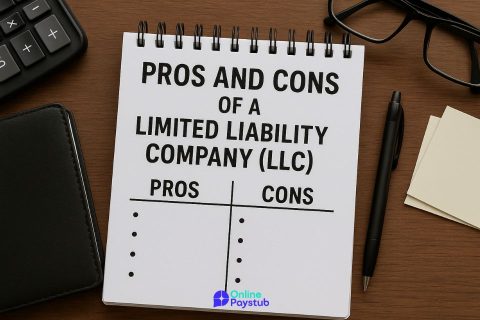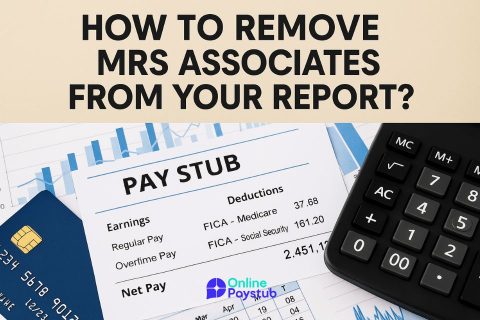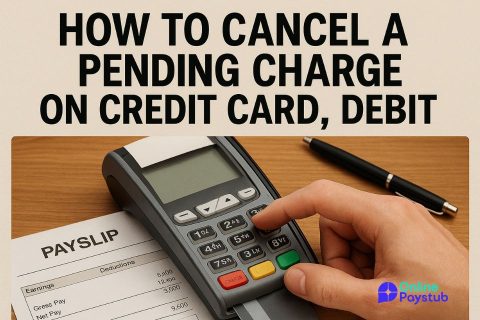Being self-employed brings freedom and flexibility but it also comes with the responsibility of proving your income when needed.
Whether you’re applying for a mortgage, renting an apartment, or securing a loan, providing accurate proof of income is essential.
This guide explains everything self-employed individuals need to know about documenting and verifying their income in 2025.
What Is Proof of Income and Why It Matters
Proof of income is documentation that verifies how much money you earn.
For traditional employees, this is often straightforward with paystubs and W-2 forms.
For self-employed workers, it’s more complex because income can come from multiple sources and fluctuate month-to-month.
Why proof of income is important:
- Loan Approvals: Lenders require proof of steady income to issue loans or mortgages.
- Rental Applications: Landlords need to confirm your ability to pay rent.
- Insurance Applications: Some insurers require income verification for policy issuance.
- Financial Planning: Knowing and tracking your income helps you manage taxes and plan your business growth.
Accurately documenting your income builds trust with financial institutions and protects your financial future.
How to Prove Income When Self-Employed
Self-employed individuals have several reliable ways to prove income. Here are the most common and effective methods:
- Income Tax Returns (Form 1040):
Your filed tax returns are one of the strongest proofs of income. They reflect your net earnings after business expenses. - 1099 Forms from Clients:
If you perform contract work, your clients may issue you Form 1099-NEC showing the amount paid for services. - Bank Statements:
Regular deposits into your business or personal account can demonstrate ongoing income, especially when paired with invoices or contracts. - Profit and Loss Statements:
This document summarizes your business’s income and expenses over a period. It shows your profitability and is often requested by lenders. - Self-Generated Paystubs:
Using accounting software (like QuickBooks or FreshBooks), you can create paystubs for yourself that itemize your income. - Invoices and Client Contracts:
Providing copies of invoices, contracts, and payment confirmations supports your income claims.
Best Practice Tip:
Use multiple documents together — for example, a tax return plus bank statements — to strengthen your proof of income.
Common Proof of Income Documents for Self-Employed Individuals
Self-employed workers often need multiple documents to effectively prove their income.
Here are the most commonly accepted proof of income documents for self-employed individuals:
1. Income Tax Returns (Form 1040)
Your annual income tax returns are one of the strongest proofs of income.
Lenders and landlords trust IRS-filed tax documents because they provide a full picture of your earnings, deductions, and net income.
Tip:
Include Schedule C (Profit or Loss From Business) when presenting your tax return — it details your business income and expenses.
2. 1099 Forms from Clients
If you work as an independent contractor or freelancer, your clients may issue Form 1099-NEC.
This form shows how much they paid you in a tax year.
Tip:
Gather all your 1099 forms for the year to demonstrate your total business revenue.
3. Bank Statements and Financial Records
Bank statements showing regular business income deposits can serve as supplementary proof.
They are particularly helpful when matched with invoices, contracts, or tax filings.
Tip:
Maintain a separate business bank account to make it easier to track your income cleanly.
4. Profit and Loss Statements
A Profit and Loss (P&L) statement summarizes your business income and expenses over a specific period (monthly, quarterly, or annually).
It helps prove not just income but the overall financial health of your business.
Tip:
Use accounting software to generate accurate and professional P&L reports.
5. Self-Generated Paystubs and Invoices
If you pay yourself a salary through your business, you can create self-generated paystubs using payroll or invoicing software.
Invoices issued to clients also provide solid proof of income.
Tip:
Keep copies of all invoices and payment confirmations for each client throughout the year.
The Risks of Insufficient Tax Withholding on Your Paycheck
For self-employed individuals, failing to properly track and withhold taxes can cause serious problems:
- Large Tax Bills at Filing Time:
Without regular estimated tax payments, you could owe a substantial amount when filing your return. - IRS Penalties and Interest:
Late or insufficient tax payments can result in significant financial penalties. - Difficulty Getting Loans or Mortgages:
Inconsistent or undocumented income can hurt your chances when applying for financing. - Cash Flow Problems:
Scrambling to find money for taxes can disrupt your business operations.
Tip:
Plan ahead and set aside a portion of every payment you receive for taxes.
Best Practices for Maintaining Accurate Income Records
To stay organized and be ready to show proof of income when needed, follow these best practices:
- Maintain Separate Accounts:
Always separate your personal and business finances. - Use Professional Accounting Software:
Tools like QuickBooks, FreshBooks, or Wave simplify tracking income and expenses. - Keep Copies of All Documents:
Save invoices, 1099 forms, tax returns, and bank statements both digitally and physically. - Document Cash Payments Carefully:
Log all cash transactions to avoid gaps in your records. - Review Your Records Monthly:
Stay on top of your financials by setting aside time each month to review and reconcile your books.
Accurate records not only make tax time easier — they also boost your credibility with lenders, landlords, and clients.




No comments to show.